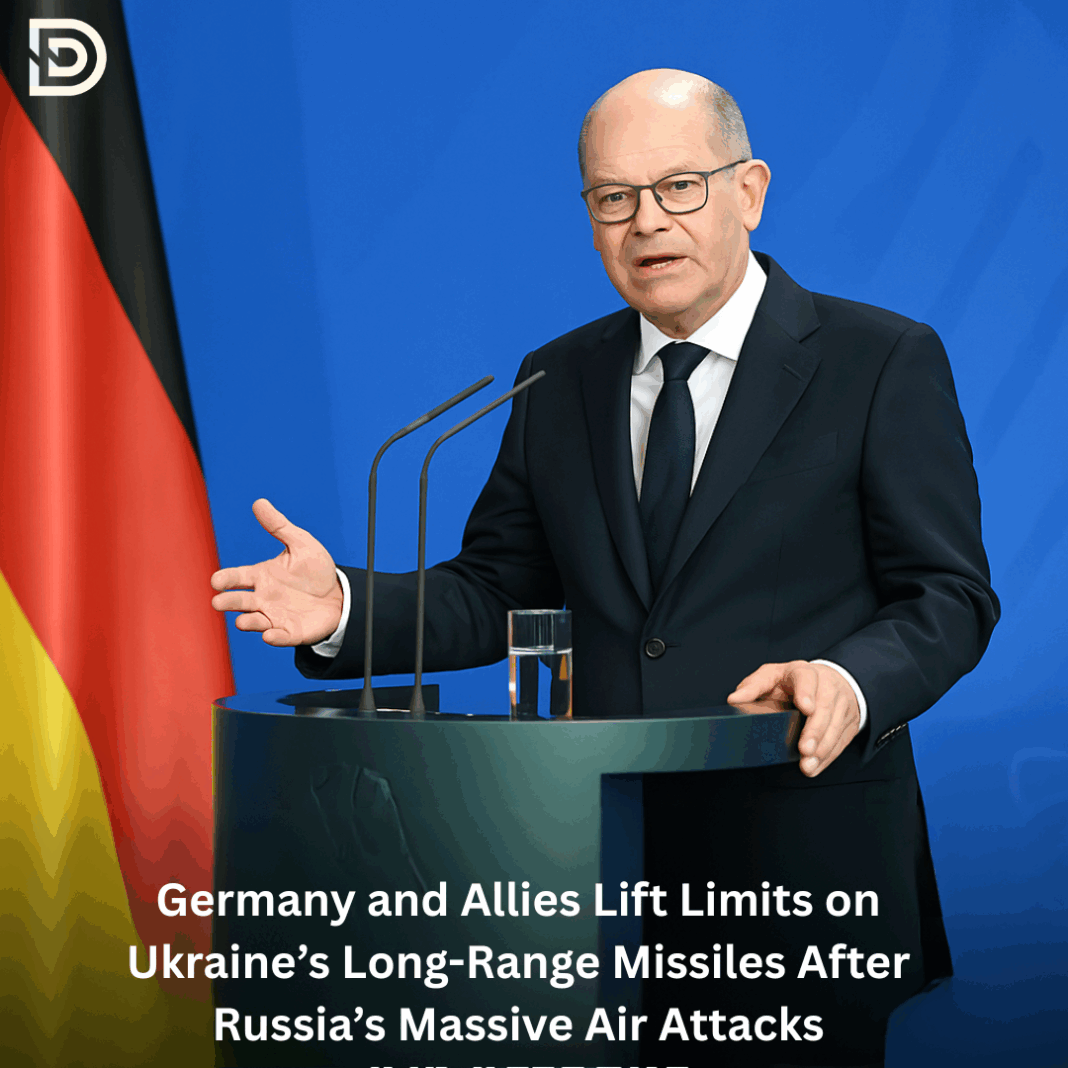A major decision has been made by Ukraine’s Western allies. For the first time since the war began, countries like Germany, the United Kingdom, France, and the United States have lifted restrictions on Ukraine using long-range missiles inside Russia.
Sudden Policy Change by Ukraine’s Allies
Until now, Ukraine was only allowed to use these weapons within its own territory. This policy shift comes after a weekend of very intense Russian attacks that hit many parts of Ukraine, including the capital city.
Germany’s new government made the announcement, saying that Ukraine is now free to strike back at military targets inside Russia using the weapons provided by its allies. This decision marks a big change from previous rules, where Western countries avoided allowing such actions, fearing that it might make the war worse.
Germany said the change in policy means there are “no longer any range restrictions” on the weapons they and other allies have given to Ukraine. This includes long-range missiles that can travel deep into Russian territory. Ukraine can now use these to defend itself by hitting bases, airfields, and other military sites that are being used to launch attacks on Ukrainian cities.
Reason Behind the Decision
Over the weekend, Russia launched one of the biggest drone and missile attacks since the beginning of the war. Missiles struck homes, hospitals, and schools, killing over two dozen people, including children. The scale of destruction and loss of life shocked many around the world and pushed Western countries to reconsider their approach.
Ukraine Endures Deadliest Night of War: 298 Drones, 45 Missiles Rain Terror Across 13 Regions
After these attacks, Ukraine once again asked its allies to allow it to strike Russian targets that were responsible for launching these deadly assaults. The new decision now allows Ukraine to do exactly that. By removing the restrictions, Ukraine’s military has more tools to stop future attacks before they happen.
This move also comes after earlier steps by the United States and its Western allies. In November of last year, the U.S., along with other Western allies, began allowing Ukraine to use long-range missiles known as ATACMS to strike targets in Russia. Before that, the U.S. and its Western allies had spent months debating whether to send these weapons at all. When they were finally delivered in April, Ukraine was still not permitted to use them beyond its borders.
Many U.S. officials were worried. Some feared that allowing strikes inside Russia would make the war bigger. Others were concerned that America’s own supply of these missiles was running low. Still, the decision was eventually made after it became clear that Russia was not stopping its attacks.
Reactions and Concerns
Russia has strongly objected to this new policy. Russian leaders have warned that any attack inside their country using Western-supplied missiles could lead to major consequences. Some have even said it could be considered an act of war by NATO countries, especially if carried out using weapons from nations that have nuclear power.
A spokesperson from Russia called the decision “dangerous” and claimed that it goes against ongoing efforts to find a peaceful solution. He said that these actions make it harder to reach any kind of agreement to stop the fighting.
Ukraine’s Precision Strike Shatters Russia’s Elite $7M Drone Command Base in Kursk
Meanwhile, pressure is growing in other parts of the world as well. After the deadly attacks on Ukrainian cities, more leaders are calling for stronger action. Some lawmakers are urging tougher sanctions against Russia and want to give Ukraine even more weapons to defend itself.
Ukraine’s government has been asking for this kind of support for a long time. They have said again and again that they cannot protect their people without being allowed to strike back. After the deadly weekend attacks, they repeated that message, saying only strong pressure can stop the violence.
This change also highlights a shift in the way Ukraine’s allies are responding to the war. While earlier leaders were careful not to allow actions that might expand the war, the new policy shows a growing belief that Ukraine must be allowed to defend itself in whatever way it can.
Reports suggest that Ukraine’s leadership may visit Berlin soon to discuss these changes and talk more about military support. As the war continues into its fourth year, decisions like this could have a big impact on how events unfold on the battlefield.
Ukraine has been under constant attack for years. Its allies have now decided to loosen the rules and give it more freedom to defend itself. With deadly attacks increasing and more lives lost every week, many countries are now taking stronger action to support Ukraine’s fight.
